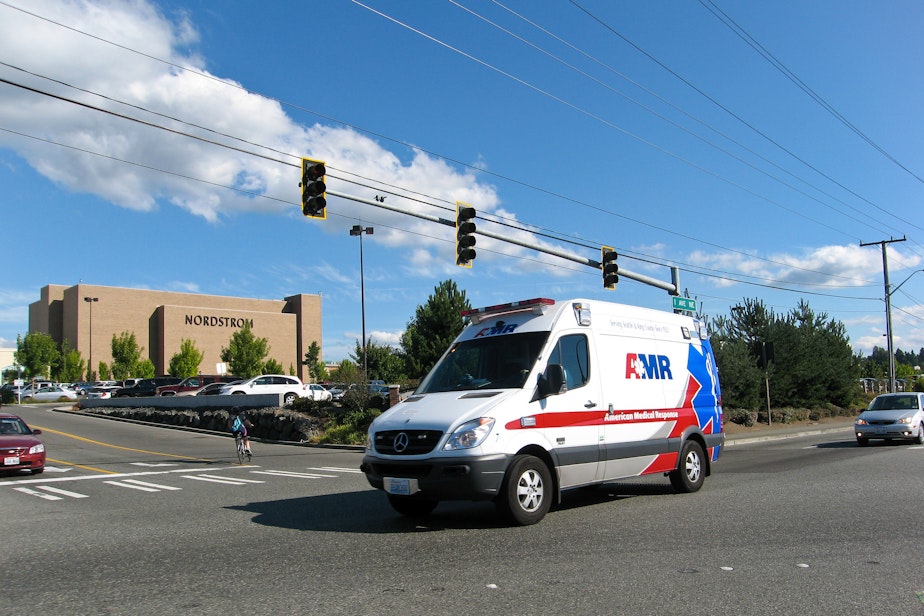Alexa can tell if you’re having a heart attack – and then call 911

Researchers at the University of Washington have taught smart devices how to correctly identify the staggered breathing of someone going into cardiac arrest while sleeping.
Dr. Jacobs Sunshine, professor at the UW School of Medicine, told KUOW’s Kim Malcolm how this could save the lives of people who live alone.
What sounds were you thinking of that would be good for Alexa to listen to and to respond to?
About half of people who experience cardiac arrest have a certain type of breathing called agonal breathing. And because this is such a unique sound, we thought that it could be a good biomarker to train a machine to identify.
To do that we partnered with people in the Paul G. Allen School of Computer Science, specifically Justin Chan and Shyamnath Gollakota, and we trained a machine to identify that unique sound signature of what these agonal breathing moments can sound like.
Okay, but what if I snore when I sleep? Or maybe I have sleep apnea for instance. Can Alexa tell the difference between that and the signs of cardiac arrest?
The smart speaker was able to identify them correctly about 97% of the time. For a false positive rate we were able to get to initially around 0.2%. With tweaks to the algorithm and taking into account the frequency with which agonal breathing occurs we were able to reduce our false positive rate to even lower.
How soon do you think we could have an app available for people?
We’re hopeful that within the next couple of years we may have something that could be ready to deploy to a larger population.
The study was a collaboration between the University School of Medicine and the Paul G. Allen School of Computer Science at the University of Washington. The authors are Justin Chan, Thomas Rea, Shyamnath Gollakota, and Jacob Sunshine.





